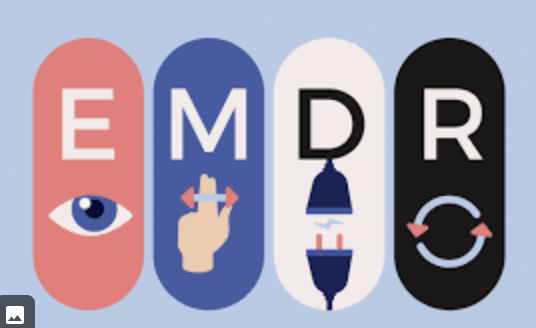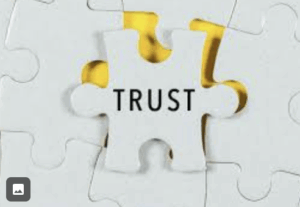Eye Movement Desensitization and Reprocessing (EMDR) is a specialized therapy designed to help people heal from trauma and other distressing life experiences. While it was originally developed to treat Post-Traumatic Stress Disorder (PTSD), research has shown that EMDR can be effective for a wide range of mental health conditions beyond trauma. Whether you’re struggling with anxiety, depression, or unresolved emotional pain, EMDR may offer a path to healing. In this blog post, we’ll explore who can benefit from EMDR, how it works, and what types of mental health conditions can be effectively treated with this therapy.
What is EMDR Therapy?
EMDR is a form of psychotherapy that helps individuals process and reframe traumatic or distressing memories, allowing them to heal from the emotional impact of those experiences. Unlike traditional talk therapy, EMDR uses bilateral stimulation—such as guided eye movements, hand taps, or auditory tones—to help the brain reprocess traumatic memories and integrate them in a healthier way. The goal is to reduce the emotional intensity of the memories so that they no longer cause distress in everyday life.
Who Can Benefit from EMDR Therapy?
EMDR can benefit a wide range of people, especially those who have experienced trauma or are dealing with other mental health conditions. Here are some specific groups of individuals who may find EMDR particularly helpful:
1. Individuals with PTSD or Trauma
EMDR was originally developed to treat Post-Traumatic Stress Disorder (PTSD) and remains one of the most effective treatments for individuals who have experienced trauma. This includes people who have survived physical or emotional abuse, sexual assault, accidents, natural disasters, or combat. Traumatic memories often remain unprocessed in the brain, leading to flashbacks, nightmares, anxiety, and emotional distress. EMDR helps individuals reprocess these memories so they no longer trigger intense emotional reactions.
Signs That EMDR May Help You with Trauma:
- You experience intrusive memories or flashbacks related to a traumatic event.
- You have nightmares or difficulty sleeping due to trauma.
- Certain situations, places, or people trigger overwhelming anxiety or fear.
- You feel emotionally numb or detached from others as a result of the trauma.
- Traditional talk therapy hasn’t fully addressed your trauma-related symptoms.
2. People Struggling with Anxiety
Anxiety disorders, including generalized anxiety disorder (GAD), panic disorder, social anxiety, and specific phobias, can be effectively treated with EMDR. Many people with anxiety are dealing with unresolved emotional issues or past experiences that continue to cause distress. EMDR can help address the root causes of anxiety by reprocessing these underlying memories, reducing symptoms, and building resilience.
How EMDR Can Help with Anxiety:
- It targets past events or experiences that may contribute to present-day anxiety.
- It reduces the emotional intensity of irrational fears and worries.
- It helps reframe negative beliefs about yourself, such as “I’m not safe” or “I’m not good enough.”
- It provides tools for managing anxiety triggers in daily life.
3. Individuals with Depression
Depression can be triggered by a variety of factors, including unresolved trauma, loss, or long-standing negative thought patterns. EMDR therapy helps by addressing the emotional wounds that contribute to depression, such as feelings of guilt, shame, or grief. While depression can feel overwhelming, EMDR offers a way to reduce emotional burdens and develop healthier, more positive perspectives.
How EMDR Can Support Depression Treatment:
- It helps individuals reprocess painful memories that contribute to feelings of worthlessness or hopelessness.
- It reduces the emotional intensity of guilt, grief, or shame, which are common in depression.
- It supports the development of healthier coping mechanisms and emotional resilience.
- It works alongside other treatments, such as medication and Cognitive Behavioral Therapy (CBT), to enhance recovery.
4. Survivors of Childhood Abuse or Neglect
Individuals who have experienced childhood abuse, neglect, or trauma may carry unresolved emotional pain into adulthood. These early experiences can shape self-worth, trust in others, and the ability to form healthy relationships. EMDR is particularly effective for helping people heal from childhood trauma by reprocessing these early memories and reframing the negative beliefs that result from them.
EMDR Benefits for Childhood Trauma Survivors:
- It helps individuals process deeply ingrained feelings of shame, fear, or abandonment.
- It reduces emotional triggers related to past abuse, enabling healthier relationships in the present.
- It helps reframe beliefs like “I’m unlovable” or “I’m not safe” that developed during childhood.
- It can be used in combination with other therapies to support long-term healing.
5. Individuals with Phobias
Phobias, such as fear of flying, heights, or social situations, are often rooted in past experiences or learned fears. EMDR can help individuals confront and reprocess the specific memories or events that contributed to the development of these fears. By reducing the emotional charge of these memories, EMDR can make it easier for individuals to manage their phobias and regain control over their lives.
How EMDR Can Help with Phobias:
- It helps desensitize the emotional reactions to feared situations or objects.
- It reprocesses the memories that may have contributed to the phobia’s development.
- It helps individuals confront their fears in a safe and controlled environment.
6. Those Dealing with Grief and Loss
Grief is a natural response to losing a loved one, but for some individuals, the emotional pain can feel overwhelming and unmanageable. EMDR can be an effective tool for those who are struggling with complicated grief, particularly when the loss is associated with trauma or unresolved emotions. By processing the painful memories and emotions surrounding the loss, EMDR can help individuals move through their grief and find healing.
How EMDR Supports Grief Recovery:
- It helps process traumatic memories associated with the loss, such as the circumstances of a sudden death.
- It reduces feelings of guilt, regret, or unresolved anger related to the loss.
- It helps individuals reframe their relationship with the person they lost in a more peaceful way.
7. Individuals with Addictions or Substance Abuse Issues
For many individuals struggling with addiction, underlying trauma, stress, or unresolved emotional pain plays a significant role in their substance use. EMDR can be used as part of a comprehensive addiction treatment plan to address the emotional triggers that lead to substance abuse. By processing trauma or distressing memories, EMDR can reduce the urge to use substances as a coping mechanism.
How EMDR Helps with Addiction:
- It addresses the root causes of substance abuse, such as trauma or emotional pain.
- It reduces emotional triggers that lead to cravings or relapses.
- It helps individuals develop healthier coping mechanisms for managing stress.
8. People Struggling with Low Self-Esteem or Negative Self-Beliefs
Negative self-beliefs, such as “I’m not good enough” or “I’m a failure,” can stem from past experiences of rejection, criticism, or failure. These beliefs can significantly impact self-esteem and overall well-being. EMDR helps individuals challenge and reframe these negative beliefs by reprocessing the memories that contributed to them, leading to healthier self-esteem and more positive self-perception.
EMDR Benefits for Low Self-Esteem:
- It helps individuals process memories that shaped negative self-beliefs.
- It reduces the emotional intensity of past experiences that harmed self-worth.
- It fosters more positive and empowering beliefs about oneself.
Conclusion
EMDR therapy is a powerful and versatile treatment option that can benefit individuals dealing with a wide range of mental health challenges, from trauma and PTSD to anxiety, depression, and more. Whether you’re struggling with unresolved emotional pain, difficult memories, or deep-seated negative beliefs, EMDR can offer relief and help you move forward in your healing journey.
At Kingston & Co Counseling, we offer EMDR therapy to help individuals overcome trauma and other emotional challenges. If you’re curious about how EMDR could benefit you, please contact us to learn more or to schedule an appointment. Our experienced therapists are here to guide you on your path to healing and recovery.







